Loan sharks
What is a loan shark?
A loan shark is someone who runs a money lending business without permission from the Financial Conduct Authority (FCA). Loan sharks rarely give any paperwork and if payments are missed, they often use intimidation and violence to get money from borrowers. A money lender must be authorised by the FCA to lend money legally. Money lenders who aren't authorised by the FCA are breaking the law. They are known as loan sharks.
How to spot a loan shark
This helpful animation gives some top tips and explains how to spot a loan shark, and what to do if you or somebody you know has borrowed money from a loan shark.
What to do if you spot a loan shark
If you have borrowed money from a loan shark, you haven't broken the law. The lender is the one committing a crime.
Loan sharks are increasingly operating online and use social media platforms to entice and exploit new victims so beware of any offers to borrow money from strangers or unknown companies online.
How to report a loan shark
If you think you may have borrowed from a loan shark, call the Stop Loan Sharks 24 Hour Helpline on 0300 555 2222 to talk to the England Illegal Money Lending Team in complete confidence.
They can discuss with you any worries you may have and will listen, give information and provide specialist support.
You can report a loan shark or get help online at Stop Loan Sharks. Live Chat is available on the website between 9am and 5pm, Monday to Friday.
Other lending that is not authorised by the FCA
Not all lending needs to be authorised by the FCA - informal, one-off loans between friends or family aren't against the law. If you're not sure if a loan needs to be authorised by the FCA, get help from your nearest Citizens Advice.
If someone who has lent you money threatens you or is violent, contact the police or the Illegal Money Lending Team straight away.

Sunderland City Council has been awarded Partner Recognition Status by the England Illegal Money Lending Team (IMLT) for helping to raise awareness of loan sharks, their impact on local communities and create safer spaces for residents to live and work.




